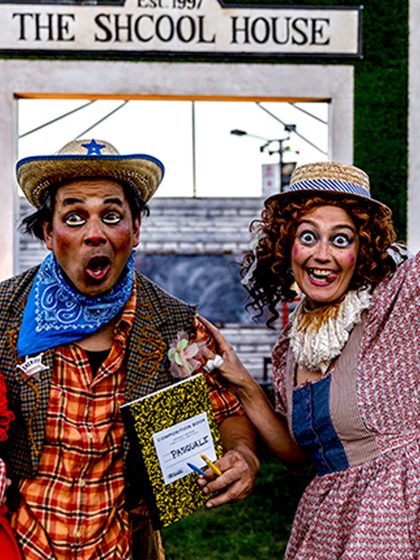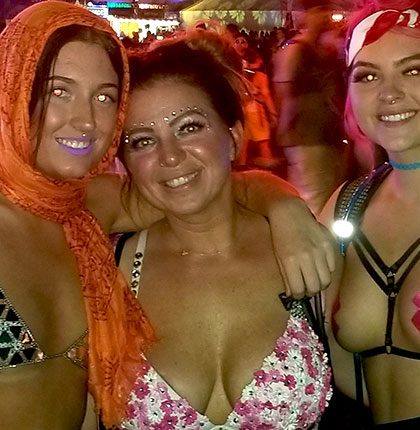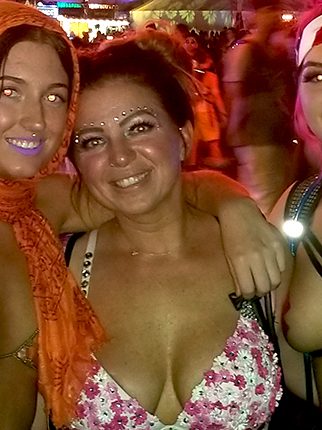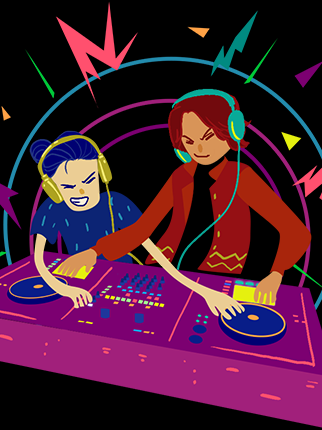How the Mixtape Changed Dance Music
These days you’d be hard pressed to find someone with a cassette player in their car and even less likely to see someone at the park blasting their favorite DJ’s latest mix from a boombox. But that’s what it was like back in the proverbial day. Mixtapes were the life’s blood of the dance music scene. They were a DJ’s primary calling card, not to mention one of their biggest sources of income. Ravers bought tapes, traded tapes, and even bootlegged tapes to help spread sounds from coast to coast. And then they were gone.
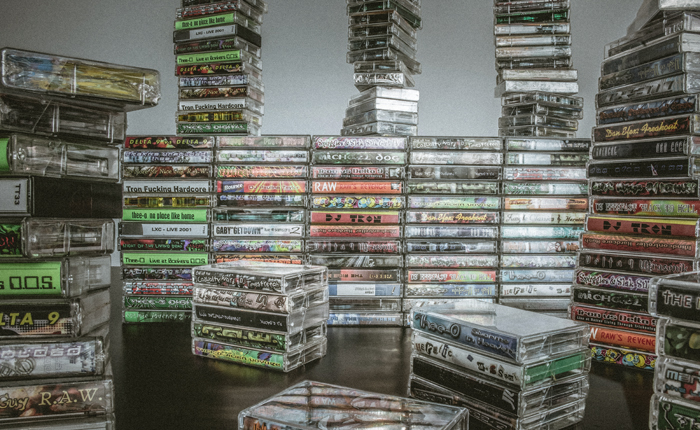
“Everything changed [around Y2K],” says Ron D Core, West Coast DJ, producer and owner of Dr. Freecloud’s Record Shoppe. “It also coincided with DJs acquiring new formats and things going from CDs to digital. Record sales were going down as well, and tapes went along with the records.”
In this roundtable interview, Ron, Jason Blakemore (aka DJ Trance), DJ Dan, and Ken Lawrence, proprietor of Pure Acid Mixtapes, talk about the impact tapes had on dance music culture, and why they should only live on as fond memories.
“I don’t understand cassettes. It was the ‘90s; why aren’t these CDs?”
How did mixtape culture start for you guys?
Ken Lawrence: I had just graduated college and was really into raves, so I started making these hand-painted T-shirts and toys that I got at the dollar store and started vending at parties. Pasquale met me once and invited me to set up at Insomniac, his Friday weekly. The first night, I sold absolutely nothing, but he encouraged me to come back. I think it was a couple of weeks later Jason [DJ Trance] came up to me and was like, “Hey, I’ve got these tapes; do you want to sell them for me?” I was like, I don’t know, they’re cassettes. I don’t understand cassettes. It was the ‘90s; why aren’t these CDs? So reluctantly, I put some of his tapes on my table, and I think they all sold that night. They looked great under my blacklight, and I popped one in on my way home, and it was I’m on Planet E. Then it was like, “Okay, I understand this mixtape thing.” I think I called up Jason and asked him if he could bring me more, and he could never bring me enough. From there, I talked to every DJ I could.
“Tapes, in my opinion, were the baseball cards of our scene. There was just more of a collector’s factor to it.”
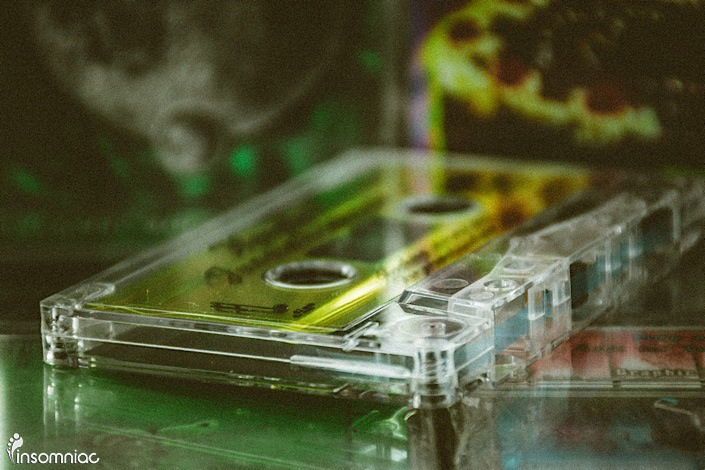
What was it about cassettes that resonated with DJs and fans, despite CDs being the more popular, better-sounding format?
Ron D Core: Tapes, in my opinion, were the baseball cards of our scene. A CD you could only do a simple flap or card and then the disc, but you could get cool colored tapes, cool inks to go on the tapes, fold-out covers. You could add stickers. There was just more of a collector’s factor to it.
Ken Lawrence: Mixtapes were little magic boxes. They felt like something you weren’t really supposed to have—something you’d keep in a shoebox under your bed in secret.
DJ Dan: I think for a long time, we were so used to making a mix on a tape deck and using paper to write on. I remember when Ron and I did DX2 Volume 1; it could not have been more generic.
DJ Trance: DX2 was the quintessential mixtape, the peak of the whole era. I still listen to that mix. I wanna ask you guys something: Do you recognize this? [Speaks in a hoarse, slowed-down voice.] “Hi. This. Is. Smitty. Thanks for your call.”
Ken Lawrence: [Laughs]
DJ Dan: Who just said that? [Laughs]
DJ Trance: There was an old guy named Smitty who made all our tapes.
Ron D Core: I would say nine out of 10 tapes back then were done by Smitty. Keep in mind, he was called “Smitty and the Boys,” but there were no boys—there was just him. [Laughs]
“Those mixtapes were so important. We made enough money to buy the records, and put the records on the tapes, and play them out so people would come to hear us. It was like a circle that kept feeding itself.”
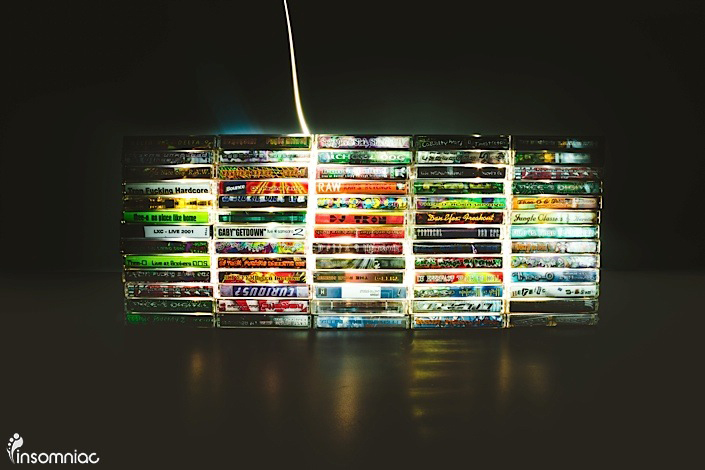
What was the financial arrangement between DJs and resellers?
DJ Dan: Most of it was consignment, [but] there would be those stores that would give you cash straight-out.
Ken Lawrence: I would.
DJ Dan: When I moved to San Francisco and changed my sound, I did a double tape for a single-tape price, just to make sure my sound was getting out there, and they would pay me 100 percent cash upfront. But most record stores would do consignment, because that way if you wanted to shop for records and had sold 20 tapes, then you could buy 20 records that week.
DJ Trance: A tape would cost me $1.50 to make. If I had a new tape out, Ken would say, “Bring me 100,” and I’d give them to him for $600. So I could make 500 tapes for about $700. I’d sell 100 of them right away to Ken, and he’d sell almost all of them the first night. Then I’d have about 400 tapes equity. The markup was crazy. I think we were all bummed to let that go.
DJ Dan: There’s no way any of us could have afforded to buy records like we had to. Those mixtapes were so important. We made enough money to buy the records, and put the records on the tapes, and play them out so people would come to hear us. It was like a circle that kept feeding itself.
DJ Brian: I lived in Orange County, and we’d just do our rounds up in L.A.: Street Sounds, DMC, Groove Riders, Beat Non Stop. You could make $1,000 once a month just cruising around, dropping off tapes.
“Now, I put a track out on Beatport, and I might make some money off that for a week before everybody can torrent it.”
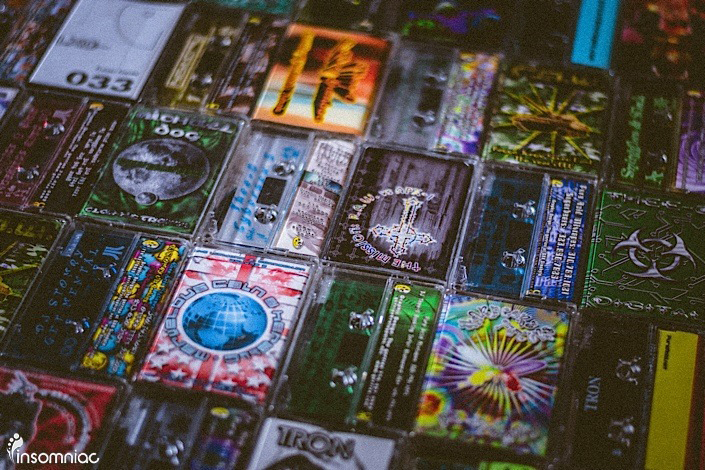
What was it like on the retail end?
Ron D Core: Since day one, when we opened Dr. Freecloud’s Record Shoppe, mixtapes were our bread-and-butter item. We sold a lot of records, but profit-margin-wise and what helped with the bills was the mixtape. We were selling 20–30 on a daily basis, and at any given time there were at least 1,000 tapes stacked on our racks.
DJ Dan: I remember doing DX2 Volume 1 with Ron and getting that tape out there. People were listening to that in every car—mainly because of Ron, because he had been around—and that’s the thing that got me exposed. I really credit the mixtapes for most of my success.
DJ Trance: I did the same thing. I somehow talked Fester into doing a tape with me, so we mimicked you guys and did a Fester/Trance thing.
DJ Dan: I think people really buzzed on being able to get two DJs on one tape, and that’s how it would spread. You’d go to the East Coast, and you’d see dupes of the tape. It would be your tape with a totally different cover. [Laughs] “What the fuck is this?!”
DJ Trance: Now, I put a track out on Beatport, and I might make some money off that for a week before everybody can torrent it.
“It was almost too late at that point…there was no need to go to the underground to find music.”
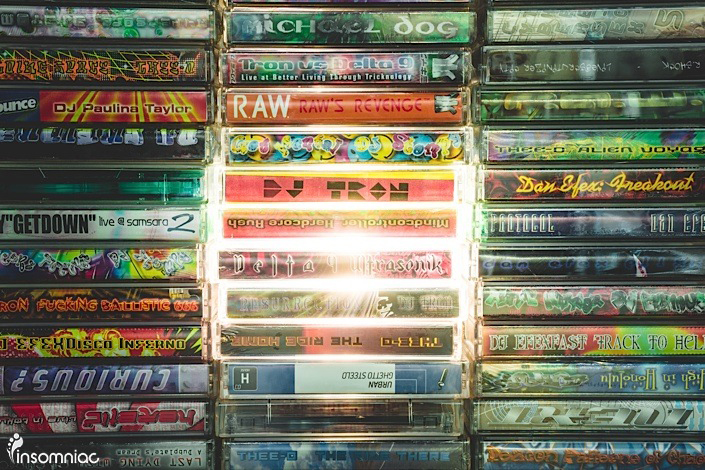
When did you first start noticing the tape business was in decline?
Ron D Core: Y2K.
Ken Lawrence: I agree with that.
Ron D Core: Everything changed. It also coincided with DJs acquiring new formats and things going from CDs to digital. Record sales were going down as well, and tapes went along with the records.
Ken: A lot of the people who were buying the mixtapes around 1999–2000—the kids who were going to raves five years earlier—weren’t going to raves anymore. They were going to college or had moved on with their lives. Those people weren’t involved with the scene, and the people who were didn’t really understand mixtapes and had never bought a cassette in their lives. But it was almost too late at that point, because everybody was starting to download stuff. There was no need to go to the underground to find music.
“These days my live sets, with all their imperfections and flaws, are my new favorite mixes.”
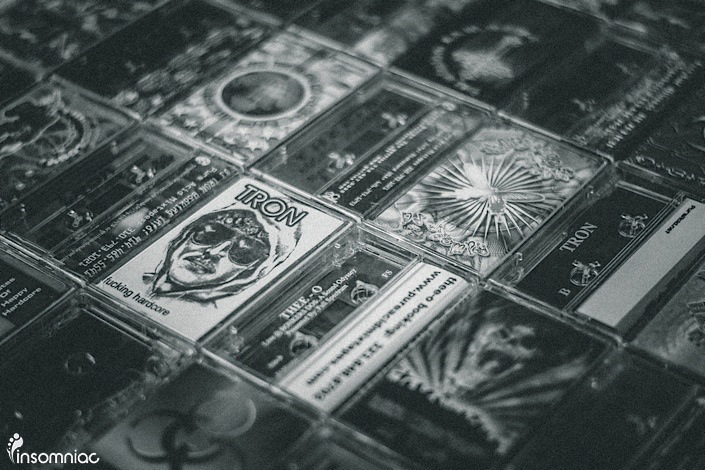
So many elements of dance music culture have evolved. The way music is created and performed has evolved, the stage production has evolved, the fashion has evolved—or devolved, as the case may be. But mixtape culture—not simply getting out mixes, but the way tapes fed all aspects of the industry—died a long time ago.
DJ Dan: Mixtapes could only evolve to a certain point, because they were just tapes. The devices in the cars and in homes changed.
Ron D Core: That whole cool factor got preserved and left in the ‘90s, and it kind of needs to stay there. It was special. Studio mixes are kind of a headache now. It seems like you’re forcing it, and it doesn’t have the same sort of magic or flow it used to have. These days my live sets, with all their imperfections and flaws, are my new favorite mixes.
DJ Trance: I’ve always taken the stance that good music stands the test of time. I’m blown away that on a daily basis I get people hitting me up about mixes I made 20 years ago. Kids find music that’s good. They find Led Zeppelin, they find DX2. They find what’s out there.
Ken Lawrence: Yup. DX2 and Led Zeppelin, standing the test of time! [Laughs]


